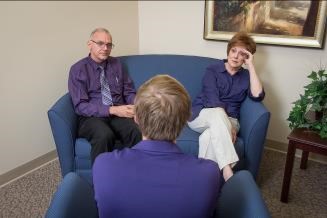Conflict Resolution Programs
We encounter conflict in all aspects of life, but utilizing healthy means of resolving conflict can reduce stress, increase interpersonal understanding, and potentially strengthen both personal and professional relationships. Knowing how to manage and effectively resolve conflict can add value to any major and move you forward in your career as well as improve the health of your own relationships.
 Conflict does not occur in a vacuum, and neither does the way we think through conflict at K-State. To provide our students with opportunities to develop both knowledge and skills, the various program offerings address the complexity of conflict as well as the growing need for individuals to become more proficient at working through conflict effectively.
Conflict does not occur in a vacuum, and neither does the way we think through conflict at K-State. To provide our students with opportunities to develop both knowledge and skills, the various program offerings address the complexity of conflict as well as the growing need for individuals to become more proficient at working through conflict effectively.
Areas of Study
We offer multiple programs designed for students who want introductory training in the field of conflict resolution, but which are also ideal for lifelong learners who want to be able to apply conflict analysis and resolution to their current professional settings.
- Conflict Resolution Certificate - Examine the skills needed to work through difficult situations, for example, at work and within organizations as well as with families.
- Undergraduate and Graduate options
- Conflict Analysis & Trauma Studies (CATS) Minor - Bridge these two interconnected areas to understand and facilitate healing from conflict, trauma, and loss.
- Undergraduate only
- Interdisciplinary Conflict Resolution Minor - Learn conflict resolution skills targeted to an area relevant to you. Choose between the organizational, family, or legal track and make the most out of your classes.
Hands-On Training
We offer students a unique opportunity to become state-approved mediators and gain first-hand experience applying the skills learned in CNRES 535: Divorce and Child Custody Mediation.
Students wanting to become state-approved mediators or refine their conflict resolution skills in organizations and other areas can contact Dr. David Thompson at davidt@k-state.edu to be partnered with a mentoring professional mediator. Mentor mediators and other professionals in alternative dispute resolution work closely with students in providing clinical services to individuals, couples, and organizations.
Requirements
To apply for co-mediation training, you must first complete both of the required background courses first.
Undergraduates:
- CNRES 531: Core Conflict Resolution
- CNRES 535: Divorce and Child Custody Mediation
Graduates:
- CNRES 751: Conflict Resolution: Core Skills & Strategies
- CNRES 755: Family Mediation
